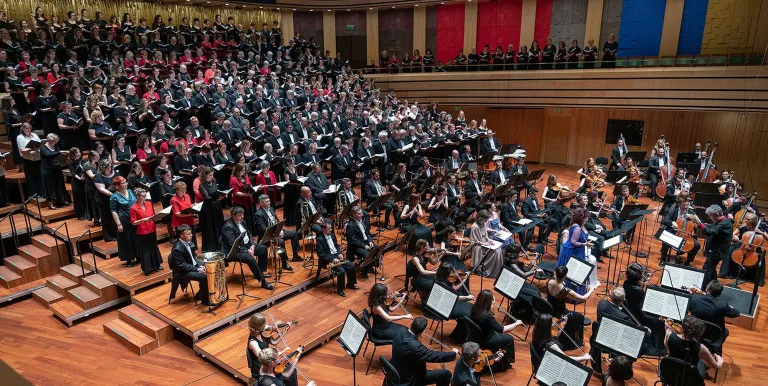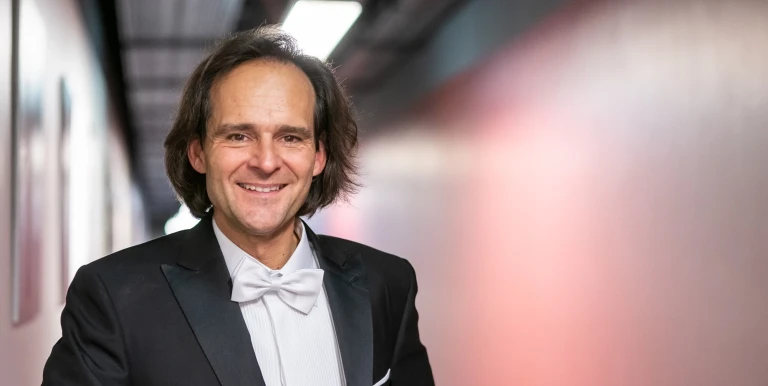one interval
Conductor:
Featuring:
Handel
Israel in Egypt, HWV 54 – parts 2 and 3
Year after year, several hundred choral singers assemble from all over the country and beyond to perform, after several months of preparation and an intensive choral weekend, some of the most significant works in the musical literature under the baton of Gábor Hollerung. Driving this initiative is a passion for singing that plays such an important role in the lives of amateur choirs, they were even able to keep it going during the pandemic. This year, they will be performing Handel’s large-scale oratorio Israel in Egypt.
Georg Friedrich Händel wrote his biblically themed oratorio Israel in Egypt in the autumn of 1738, basing it on text compiled by Charles Jennens, who also served as the librettist for Messiah. He wrote the piece in one month, as was typical of his working pace, and its premiere the following year proved to be, along with that of Saul, one of the most noteworthy events of the season. However, unlike its counterpart, the work failed to find universal success among the English audience of the time, probably due to the preponderance of choral movements. Handel’s creation, however, would later go on to gain exceptional popularity in the 19th century, precisely because – historians tell us – of the key role of the choir. In this one-of-a-kind work, Handel developed the model for the choral oratorio: nineteen choral movements, with only four arias and three duets. Not for nothing is it referred to as a ‘choral epic’. The large-scale composition, which sets the exodus of the chosen people out of Egypt to music, paints a musical picture of the ten plagues with unparalleled inventiveness and travels across an impressive arc from the first part depicting the mourning for Joseph to the third part depicting the joy felt by the Jews upon their liberation and their song of thanksgiving to the Lord. Featured at our concert will be the second and third parts.
Presented by: Budafok Dohnanyi Orchestra
-
We wish to inform you that in the event that Müpa Budapest's underground garage and outdoor car park are operating at full capacity, it is advisable to plan for increased waiting times when you arrive. In order to avoid this, we recommend that you depart for our events in time, so that you you can find the ideal parking spot quickly and smoothly and arrive for our performance in comfort. The Müpa Budapest underground garage gates will be operated by an automatic number plate recognition system. Parking is free of charge for visitors with tickets to any of our paid performances on that given day. The detailed parking policy of Müpa Budapest is available here.










